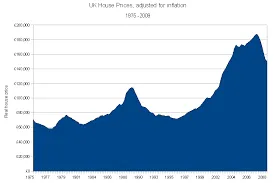CRYPTOCURRENCY MARKET OPENS TO 1.7 BILLION MUSLIMS AS DECLARED PERMISSIBLE (HALAL) UNDER ISLAMIC LAW
This news has contributed to the price spike of the cryptocurrency market as Mufti Muhammad Abu Bakar, a Sharia adviser and compliance officer at Blossom Finance in Jakarta, published a paper on whether Cryptocurrency is Halal (permitted) or Haram (forbidden) on Tuesday 10 April.
The paper essentially ruled that in certain cases, Bitcoin can indeed be Halal, permitted, and if Bitcoin is permitted then all cryptocurrency is permitted,
which may potentially open the cryptocurrency market to the Muslim population of over 1.7 billion.
A some scholars previously, in Turkey, India and Britain have labelled cryptocurrency impermissible including, Egypt’s Grand Mufti who declared in January that cryptocurrency should not be traded.
In Dubai’s Gold market, customers from around the world haggle over bangles and necklaces. Elsewhere in the emirate, the region’s top centre for gold trade, bullion is playing a new role in financial engineering.
A local start-up company founded last year, OneGram, is issuing a gold-backed cryptocurrency - part of efforts to convince Muslims that investing in cryptocurrencies complies with their faith.
The global surge of interest in cryptocurrencies extends into the Gulf and Southeast Asia, the main centres of Islamic finance.
But because they are products of financial engineering and objects of speculation, cryptocurrencies sit uneasily with Islam. Islamic law principles, in addition to banning interest payments, emphasize real economic activity based on physical assets and frown on pure monetary speculation.
The speculative nature of cryptocurrencies has triggered debate among Islamic scholars over whether cryptocurrencies are religiously permissible. Cryptocurrency companies are seeking to sway the debate by launching instruments based on physical assets and certified as valid by Islamic advisors.
Each OneGram cryptocurrency unit is backed by at least a gram of physical gold stored in a vault. The idea is to limit speculation.
“Gold was among the first forms of money in Islamic societies, so this is appropriate,” said Ibrahim Mohammed, the Briton who founded the firm with other investors last year.
“We are trying to prove rules and regulations from sharia are fully compatible with digital blockchain technology.”
Tens of millions of dollars worth of the currency has been issued so far. About 60 percent of the planned number of coins remains to be sold; OneGram hopes to issue them all before listing them on exchanges around the end of May.
OneGram obtained a ruling that its cryptocurrency conforms with Islamic principles from Dubai-based Al Maali Consulting.
In Malaysia, HelloGold launched an initial offer of its gold-backed cryptocurrency in October, receiving approval from Islamic scholars at Kuala Lumpur-based Amanie Advisors.Manuel Ho, HelloGold’s chief marketing officer, said its coin was Islamic as transactions occurred within a defined period, making them less volatile and addressing the issue of ambiguity of pricing.
Among other experiments, United Arab Emirates-based Halal Chain conducted an initial coin offer in December which is linked to a data on Islamically permissible goods.
The Saudi Arabia and UAE central banks warned their citizens about the risks of cryptocurrency, but have not imposed outright bans.
One of the earliest rulings came in 2014, when California-based academic Monzer Kahf, a prominent author of Islamic finance textbooks, deemed bitcoin a legitimate medium of exchange, though vulnerable to manipulation.
Since then, Islamic jurists in South Africa have ruled in favour of cryptocurrencies, arguing they have become socially acceptable and commonly used, said Mahomed.
“Most of the existing sharia rulings either deal with only bitcoin or include all types of cryptocurrencies, disregarding their peculiarities.”
Complexities:
Another problem is that many Islamic law scholars have trouble understanding the complexities of digital currencies, said Harris Irfan, managing director at Cordoba Capital in London.
“I would caution against accepting any fatwas from community scholars on the subject of fiqh al-mu’amalat, the jurisprudence of transactions, which is a highly complex area of sharia.”
Irfan chairs the UK Islamic Fintech Panel, a think-tank that is drafting guidelines for accreditation of sharia-compliant fintech products, including cryptocurrencies.
Mahomed said some degree of consensus had emerged globally that cryptocurrencies were a form of wealth, or maal - one step towards acceptance.
But scholars have yet to rule conclusively on whether cryptocurrencies are in fact currencies. This is important for Islamic tax payments called zakat, and for inheritances.

 !
!